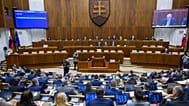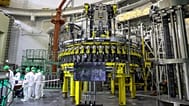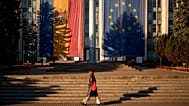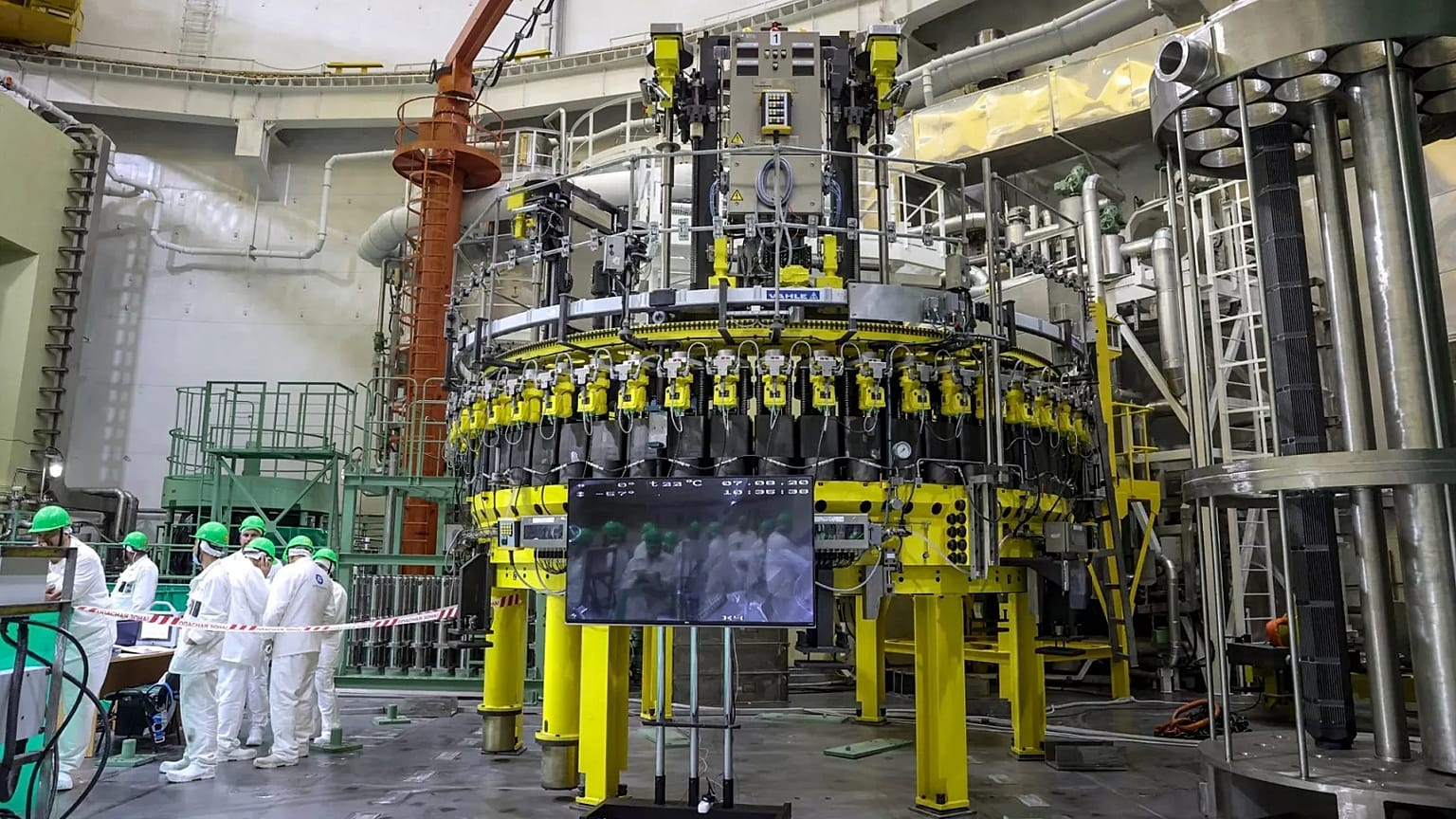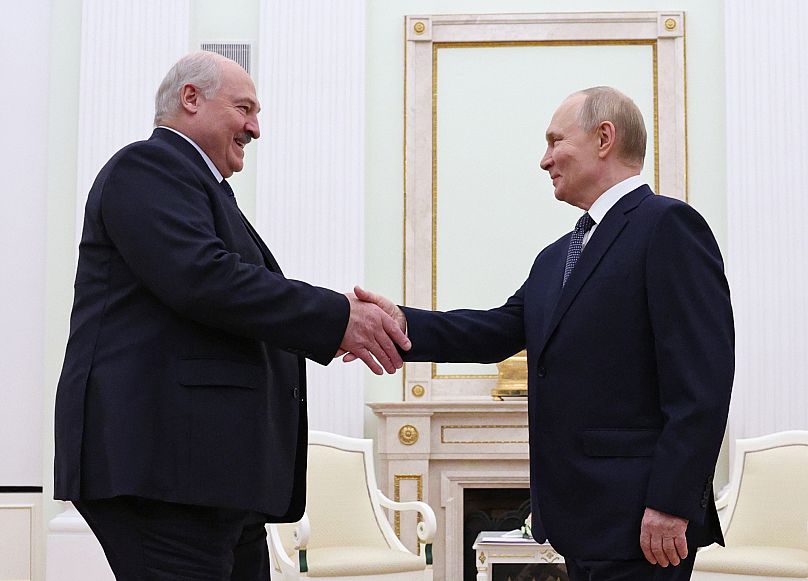Belarus opened its first nuclear power plant in Astravets in 2020 amid protests and concern in neighbouring Lithuania, where there was opposition to the plant's location.
 ADVERTISEMENT
ADVERTISEMENT
Belarus unveiled a proposal on Friday to build a second nuclear power plant in the country capable of supplying energy to the regions of Ukraine occupied by Russian forces.
President Aliaksandr Lukashenka raised the plans during a meeting at the Kremlin with President Vladimir Putin, who appeared to publicly support the idea.
Lukashenka said the plant could be used if needed to supply areas controlled by Russia in the Kherson, Zaporizhzhia, Luhansk and Donetsk regions.
Russia announced the annexation of the four regions in September 2022, referring to them as new territories despite only occupying part of them.
That announcement has not been recognised by any of the international community, with the exception of North Korea, and under Ukrainian law they are referred to as temporarily occupied territories.
Belarus opened its first nuclear power plant in Astravets in 2020 amid protests and concern in neighbouring Lithuania, where there was opposition to the plant’s location, just 40 kilometres away from the capital Vilnius.
The Astravets plant was built by the Russian state atomic energy corporation, Rosatom, with a $10 billion (€8.5 billion) loan provided by Moscow.
Putin did not specify at Friday's meeting whether Russia would provide financial backing for the second plant proposed by Lukashenka.
Sviatlana Tsikhanouskaya, the exiled leader of Belarus' opposition, slammed the proposal, saying it "all of Europe at risk."
"By proposing that Putin build a second nuclear power plant in Belarus to supply electricity to occupied territories in Ukraine, Lukashenka once again proves he is complicit in Russian aggression. He is trading Belarusian sovereignty for power and profits from war crimes," she said.
Lukashenko, who has ruled Belarus for over three decades, is a close ally of the Kremlin.
He allowed Russia to use Belarusian territory as a staging ground for Moscow's full-scale invasion of Ukraine in February 2022 and later authorised Russian tactical nuclear missiles to be deployed in his country.

